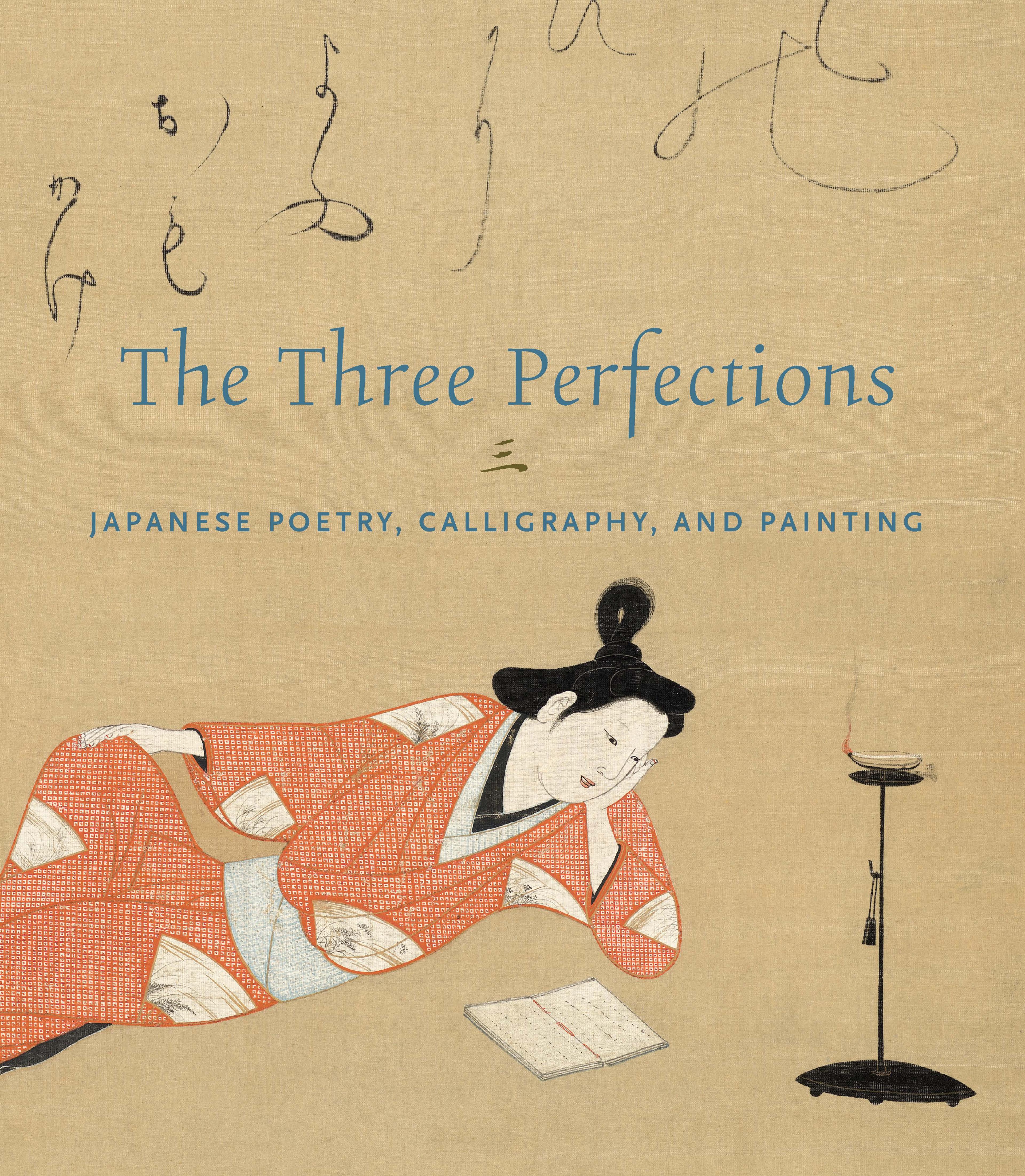Rush-Sandal Chen (Chen Puxie)
Ikkyū Sōjun, an erudite monk of the Rinzai Zen sect, built a reputation as one of medieval Japan’s great eccentrics and religious iconoclasts, in part through his poetry in Chinese. The four poems he brushed on this scroll originally appeared in his Crazy Cloud Anthology (Kyōunshū), forming the first half of the section Eight Poems about Chen Puxie, which addresses the internal conflicts among, and the decline of, the Buddhist schools.
Beneath is an unsigned, imaginary portrait of the Chinese monk mentioned in the section’s title. Muzhou Daoming (780–877) devoted so much of his daily routine to plaiting rush sandals that he became known as “Rush-Sandal Chen” (Chen Puxie). He would hang the shoes from the eaves of his temple to give or sell to passersby.
Beneath is an unsigned, imaginary portrait of the Chinese monk mentioned in the section’s title. Muzhou Daoming (780–877) devoted so much of his daily routine to plaiting rush sandals that he became known as “Rush-Sandal Chen” (Chen Puxie). He would hang the shoes from the eaves of his temple to give or sell to passersby.
Artwork Details
- 一休宗純賛 陳蒲鞋図
- Title: Rush-Sandal Chen (Chen Puxie)
- Artist: Inscription by Ikkyū Sōjun (Japanese, 1394–1481)
- Period: Muromachi period (1392–1573)
- Date: late 15th century
- Culture: Japan
- Medium: Hanging scroll; ink on paper
- Dimensions: Image: 40 5/8 × 14 1/2 in. (103.2 × 36.8 cm)
Overall with mounting: 70 3/4 × 15 5/16 in. (179.7 × 38.9 cm) - Classification: Paintings
- Credit Line: Mary and Cheney Cowles Collection, Gift of Mary and Cheney Cowles, 2021
- Object Number: 2021.398.10
- Curatorial Department: Asian Art
More Artwork
Research Resources
The Met provides unparalleled resources for research and welcomes an international community of students and scholars. The Met's Open Access API is where creators and researchers can connect to the The Met collection. Open Access data and public domain images are available for unrestricted commercial and noncommercial use without permission or fee.
To request images under copyright and other restrictions, please use this Image Request form.
Feedback
We continue to research and examine historical and cultural context for objects in The Met collection. If you have comments or questions about this object record, please contact us using the form below. The Museum looks forward to receiving your comments.
